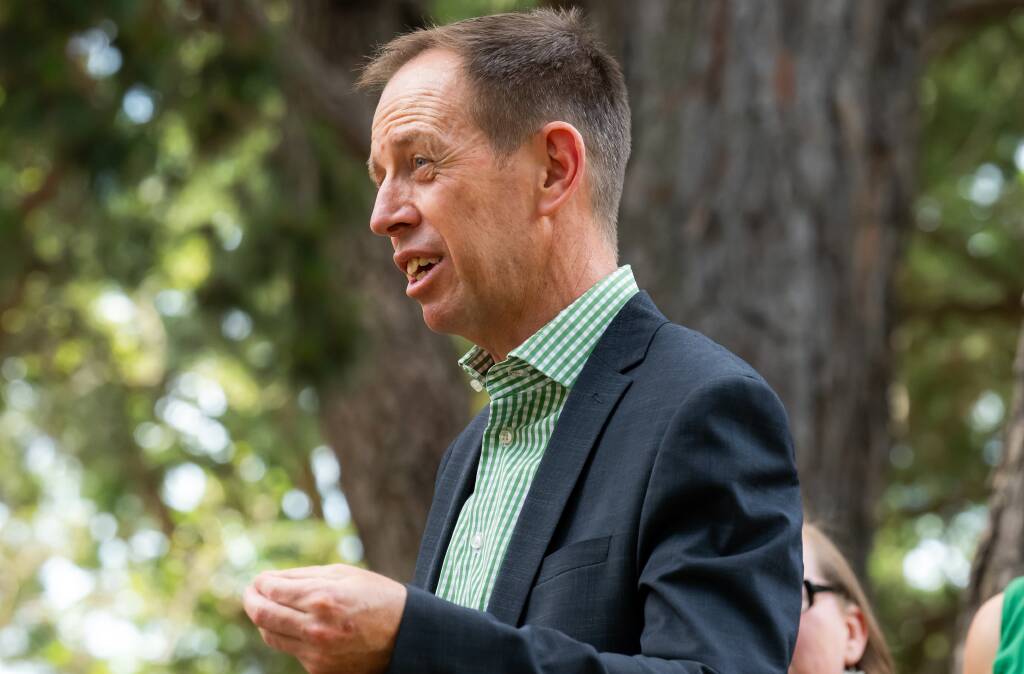An independent review will examine the over-representation of First Nations people in the ACT's justice system, with the territory government finally set to announce the beginning of an inquiry.
The ACT government will on Monday announce the appointment of an independent reviewer, almost three-and-a-half years after promising the review, The Canberra Times understands.
The announcement of the review follows new data which shows an Aboriginal person in Canberra is 24.6 times more likely to be imprisoned than a non-Indigenous person in the territory.
Across Australia, an Aboriginal or Torres Strait Islander person is 17.4 times more likely to be imprisoned than a non-Aboriginal or Torres Strait Islander person.
The Productivity Commission published new information this week showing the number of First Nations people imprisoned per 100,000 had grown from 1345.8 in 2021-22 to 1452.4 in 2022-23.
The number of non-Indigenous people imprisoned per 100,000 in the ACT fell from 87.2 in 2021-22 to 73.9 in 2022-23.
More than one-quarter of Canberra's daily average prison population is Indigenous, the data published by the commission showed.
In the 2021 census, 2 per cent of people in the ACT identified as an Aboriginal or Torres Strait Islander person.
More than 82 per cent of First Nations people in the ACT completed their community corrections orders.
Across Australia, 70 per cent of Aboriginal and Torres Strait Islander people completed their community corrections orders.

Julie Tongs, the chief executive of Winnunga Nimmityjah Aboriginal Health and Community Services, renewed her call for an inquiry with the powers of a royal commission to consider the causes of overrepresentation of Aboriginal people in the territory's justice system.
"These shameful outcomes, repeated year after year, demand as a minimum a comprehensive evidence-based response. It is quite clear from the data repeated year after year on Indigenous incarceration rates that whatever the ACT government is doing or purports to do to address this scandalous failing is not working," Ms Tongs said in a statement.
"It is imperative, as a minimum that the government initiate a comprehensive inquiry, preferably with the powers of a royal commission to inquire into the causes of the overrepresentation of Aboriginal people in Canberra in touch with the justice system and or incarcerated.
"To persist with the current clearly inadequate and failed response to the over-representation of Aboriginal people in Canberra being sent to prison is in my opinion nothing short of obscene and it is also a concern to me that some may even argue that it is racist."
Corrections Minister Emma Davidson said too many people were cycling in and out of the territory's justice system, which showed the government needed to take action.

"As the new Corrections Minister, my focus is on stronger justice reinvestment and connection to community while in the system, people will have greater access to the right support for their needs," Ms Davidson said.
Ms Davidson said the government knew there was more work to do to improve outcomes in the system for First Nations people.
"I am particularly keen to improve culturally appropriate and holistic health and social services in the community, which reduces harmful behaviour and improves life outcomes," she said.
The ACT government promised before the 2020 election it would commission a review of Aboriginal and Torres Strait Islander over-representation in the justice system if re-elected.
The government released draft terms of reference for the review in June 2023, promising an Indigenous researcher would be appointed to lead the work and a consultation process with the ACT's First Nations community on the final terms of reference.
The draft terms of reference said a final report with recommendations was due to be delivered in "late 2024".
Attorney-General Shane Rattenbury said at the time the government was responding to community calls for a review into Indigenous over-incarceration rates.
"We are seeking for it to be broad. We want to leave no stone unturned here," Mr Rattenbury said.
The government has previously resisted calls to establish an inquiry with the powers of a royal commission.
"One thing we don't want to see is a mechanism that will simply kick the can down the road. We know that taking action now is absolutely critical. We know that having Aboriginal and Torres Strait Islander leadership of this process is absolutely critical," Indigenous Affairs Minister Rachel Stephen-Smith said in May 2021.







